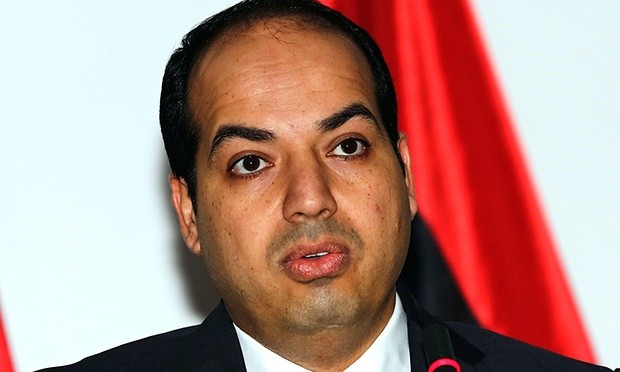Deputy PM of Serraj government: Britain failed in Libya as it did in Iraq
The Guardian
UK failed to provide help after ousting Muammar Gaddafi, says Libyan deputy PM

The deputy prime minister of Libya’s new unity government has claimed the British government repeated the mistakes of Iraq when the RAF helped remove Colonel Muammar Gaddafi from power.
In direct contradiction to claims made by the former foreign secretary William Hague, Ahmed Maiteeg told the Observer that Britain, America and France had failed to provide the necessary help after using their military might in 2011 to bring an end to the dictator’s rule.
The former Libyan prime minister, appointed last week as a deputy prime minister in the interim government of national accord, said the 2011 intervention, at a time when Gaddafi was threatening mass murder of the citizens of Benghazi, was right. However, despite claims by Hague last week that the UK had not repeated the mistakes made after the Iraq war, Maiteeg said that, following the initial military intervention, the “help did not continue”.
He said: “We have to go to the reason that the British, American and French of course intervened to help the Libyan people and support the civilians. I think the cause was highly appreciated and clear. What happened wrong after that we have to discuss. There was a lot of misunderstanding. People were thinking that Libyahad stable and strong institutions, but this was not the case.
“It was a one-man show for 42 years. Once this man has gone away we did not get the right help from our friends and allies from the west and Britain. What we need now is our friends and allies to help us build the institutions to start to build the country in the right way. They did the right thing at that time [in 2011] to help the Libyans but this help did not continue for a period of time.”
Maiteeg is part of a 32-ministers government set up after more than a year of fractious negotiations. It replaces two rival administrations, one based in Tripoli and the other in the eastern city of Tobruk, which have been locked in armed struggle.
With the formation of the new government, Maiteeg also gave cause for hope to families of the victims of IRA terrorism, who have been calling for compensation from the government of Libya, which supplied Semtex explosives to the IRA during Gaddafi’s rule. The British government has already raised the issue with the new prime minister designate of Libya, Fayez Sarraj, and Maiteeg said the administration would now examine the claims. He said: “The right thing is that our justice minister will form a committee and take care of this matter. We have to study the case by our committee and see how far we go.
“Of course our relationship with Britain is very important to us. And Britain stands by Libya at many delicate times. The minimum we can do is look at this case and study it well, and we will do the right things for our country and our friends in Britain.”
How to submit an Op-Ed: Libyan Express accepts opinion articles on a wide range of topics. Submissions may be sent to oped@libyanexpress.com. Please include ‘Op-Ed’ in the subject line.
- Libya’s HCS invites applicants for key state roles - December 31, 2023
- UK calls on Iran to prevent escalation in Israel-Hamas conflict - November 05, 2023
- Libyan Interior Minister: Immigrant shelter costs a fortune - November 05, 2023


